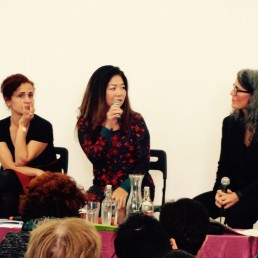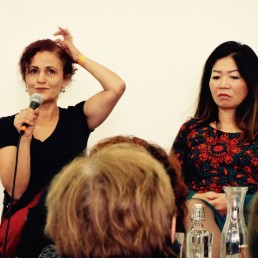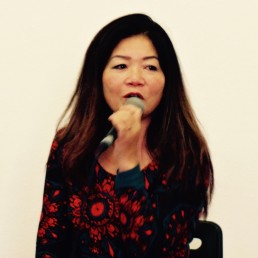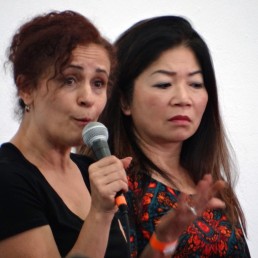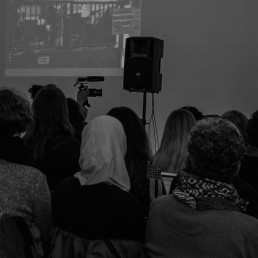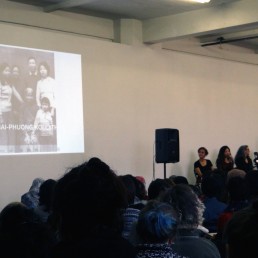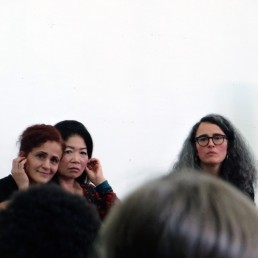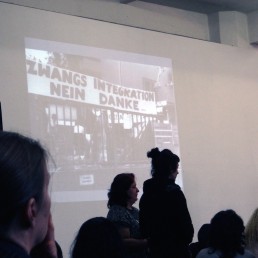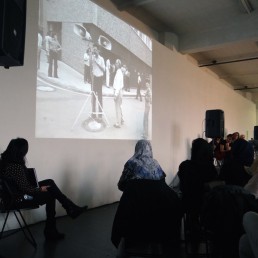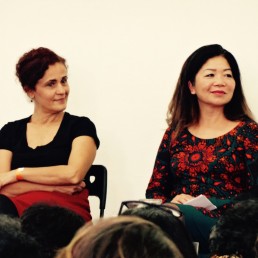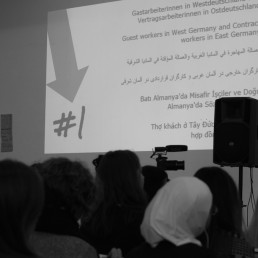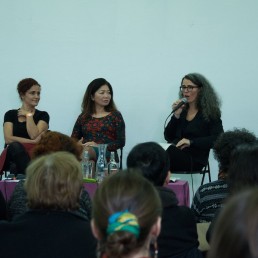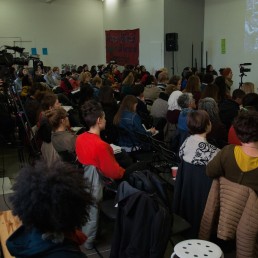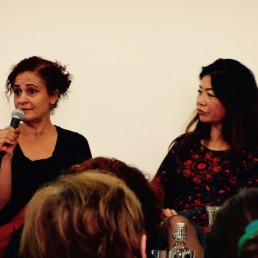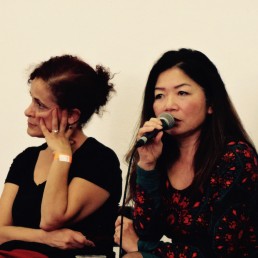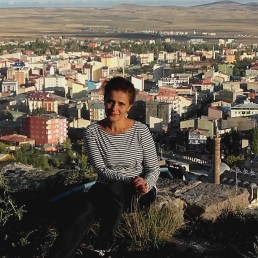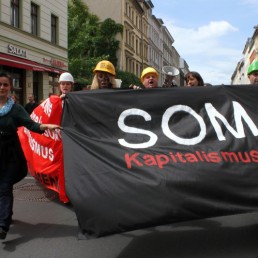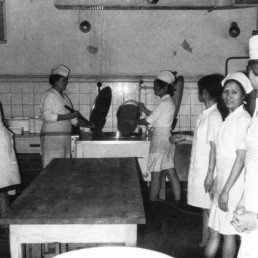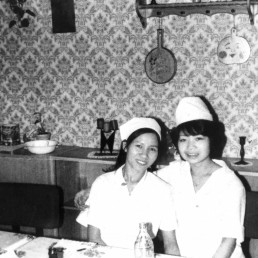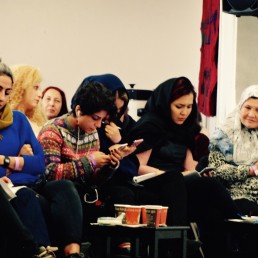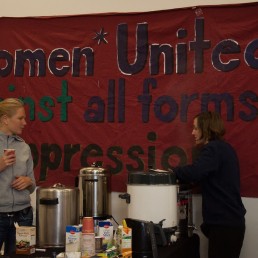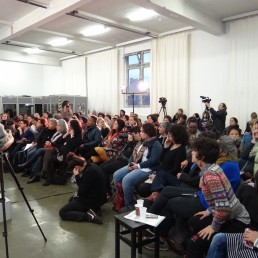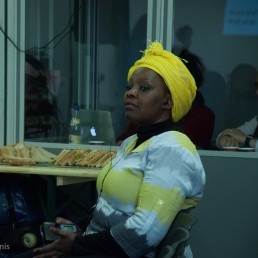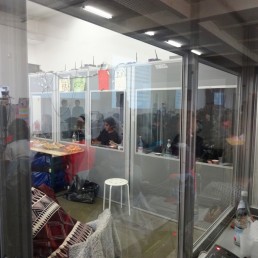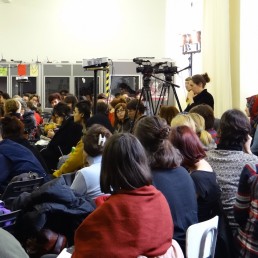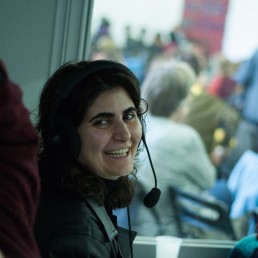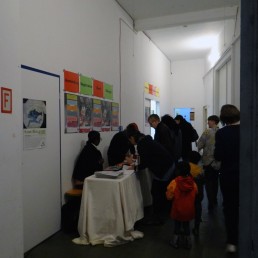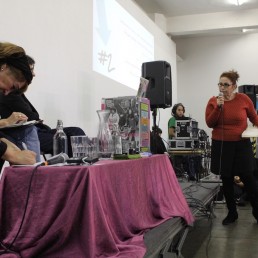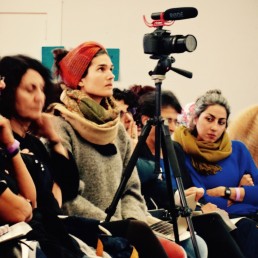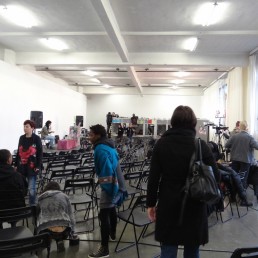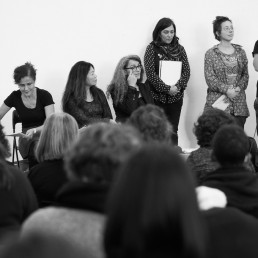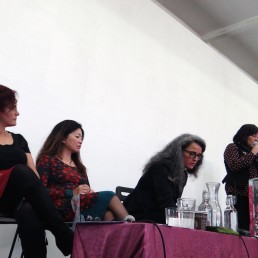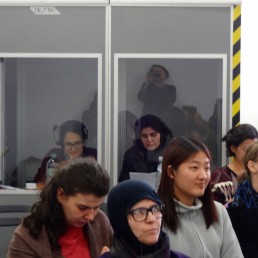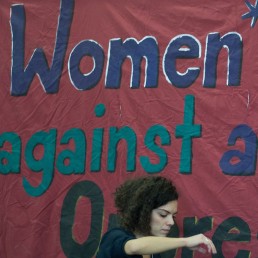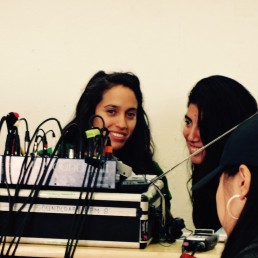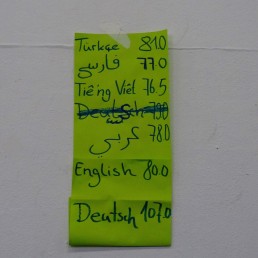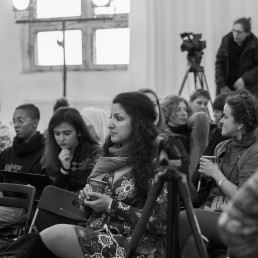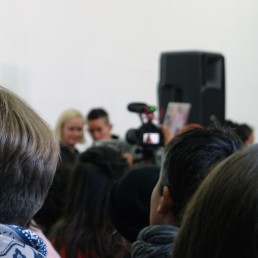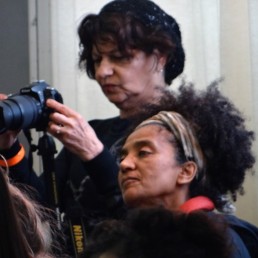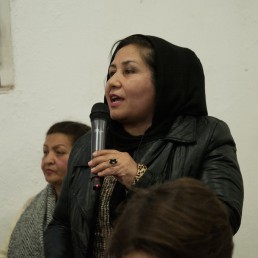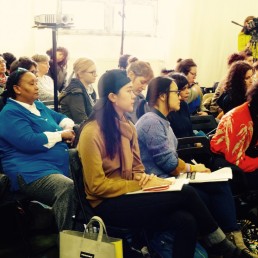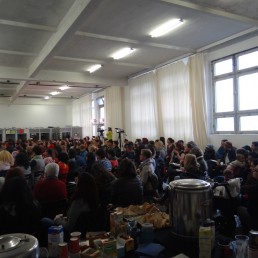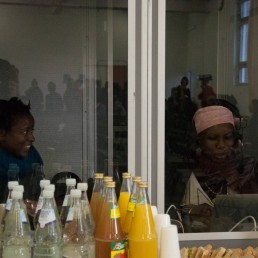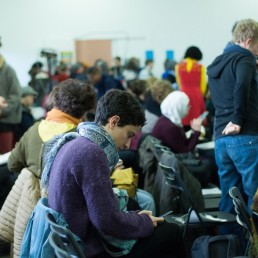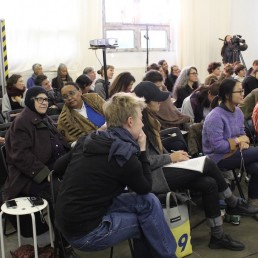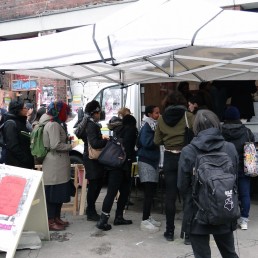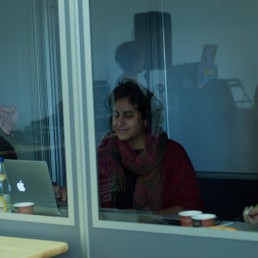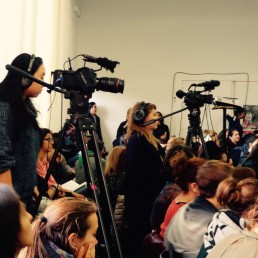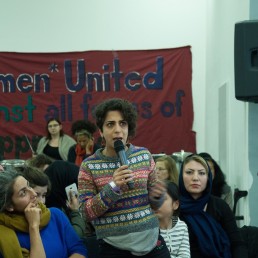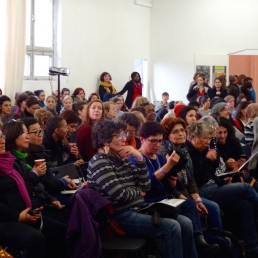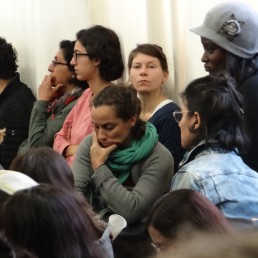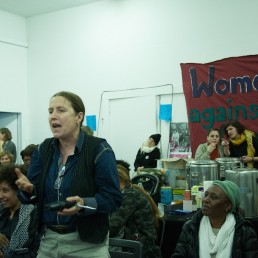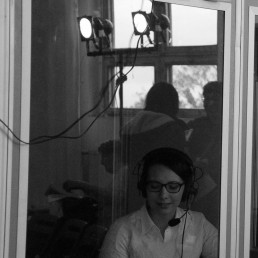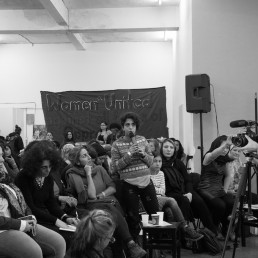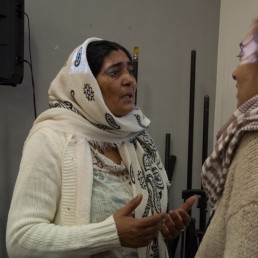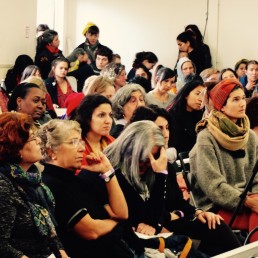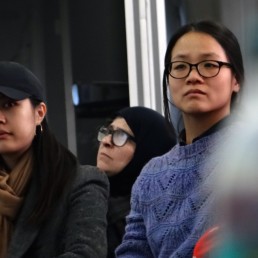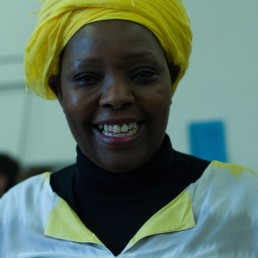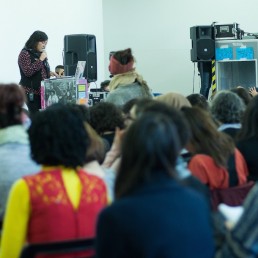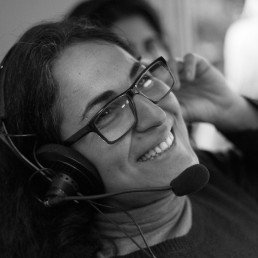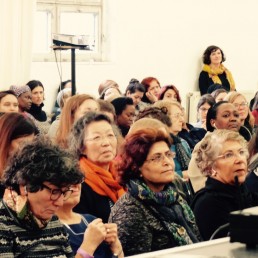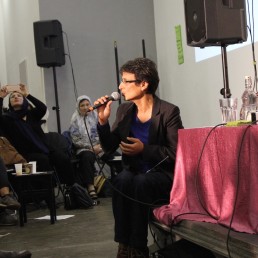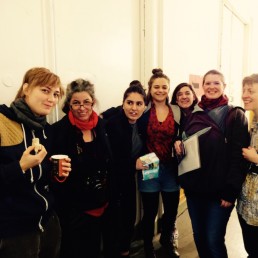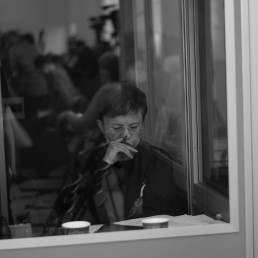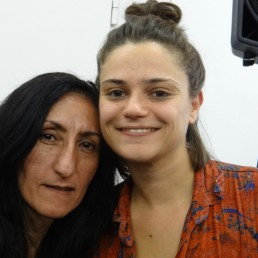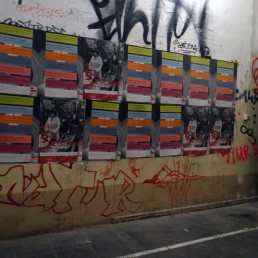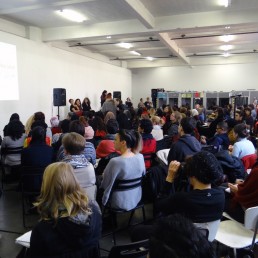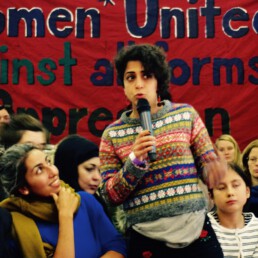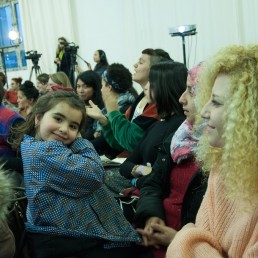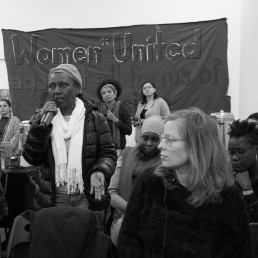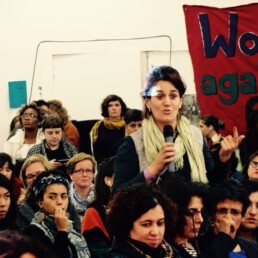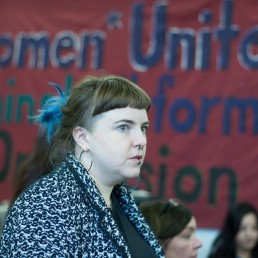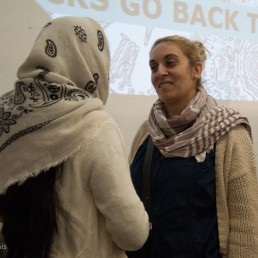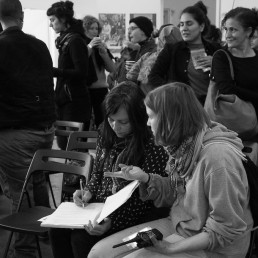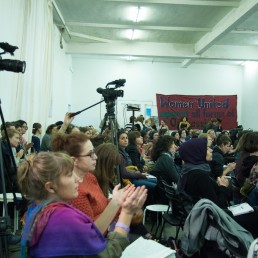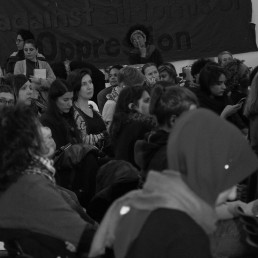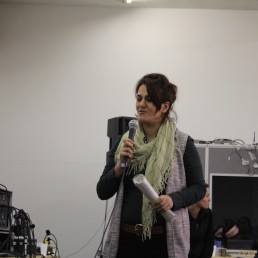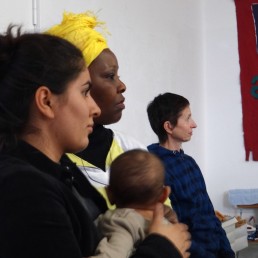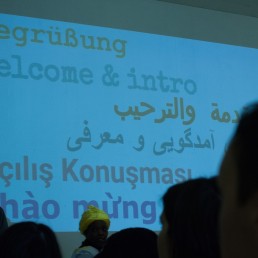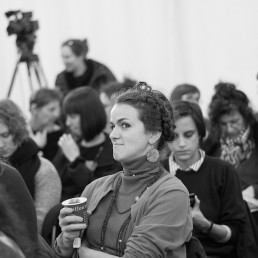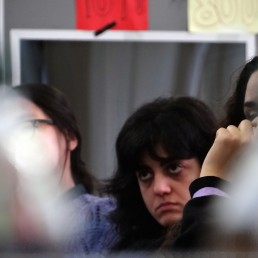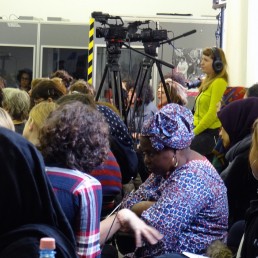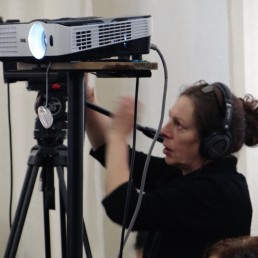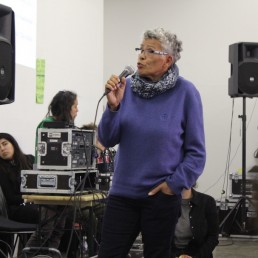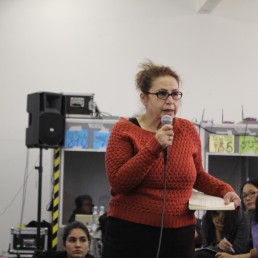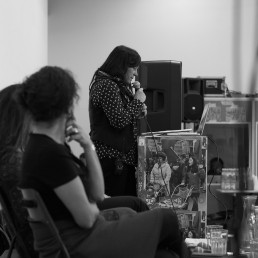Guest workers in West Germany and Contract workers in East Germany
Guest workers in West Germany and Contract workers in East Germany
Conference | When I came to Germany | October 2017 | Berlin
ConferenceWhen I came to GermanyOctober 2017 | Berlin
The postwar history of Germany cannot be told or understood without considering the role of migrant workers who began to come to Germany. From South and Eastern Europe workers came to West Germany from 1955 and to East Germany from socialist countries from 1961. Women who came as guest workers and contract workers talked about and compared their experiences and struggles of arriving and settling in Germany as well as their organising work.
The video can be downloaded on Vimeo. See license below.
Photos of the Panel
SPEAKERS & MODERATOR
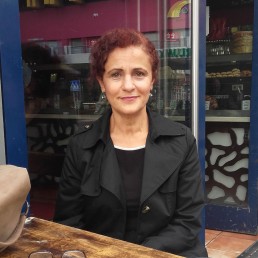
Figen Izgin, was born in Kars in Eastern Turkey in 1965. In 1979, at the age of fourteen, she came to Berlin to her parents. After secondary school she worked for many years in metal industry where she was active as a trade union representative. Later she had the opportunity to retrain and she finished an apprenticeship and studied. For many years she has been working as a certified social worker, currently with unemployed people from different countries. As a woman, as a mother and as a migrant she considers it extremely important to contribute to the struggle against racism, against social oppression and against exclusion.
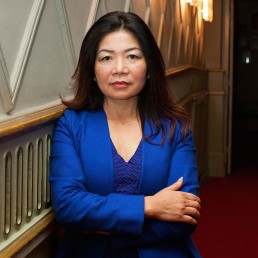
Mai-Phuong Kollath was born in 1963 in Hanoi, Vietnam and came to East Germany in 1981 as a contract worker. During her early years in Germany she lived in the „Sonnenblumenhaus“ in Rostock-Lichtenhagen, which was set ablaze by a racist mob in 1992. She remained in Rostock for this period, bearing witness to the pogroms and the racist atmosphere of post-reunification Germany. As a counsellor, coach and diversity trainer she has supported various organisations, associations and unions in their intercultural work for many years. She was the deputy chairwoman of the Bundeszuwanderungs- und Integrationsrates, as well as a representative of the network of migrant organisations in Mecklenburg-Vorpommern. www.maiphuong-kollath.de
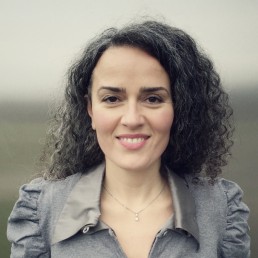
Aurora Rodonò, creative artist freelancer & lecturer (Uni Köln). For many years she has addressed the history of Italian guest workers and Italian migration cinema in her work as an activist, creative artist and researcher. Currently she is working as a research associate at the university of Cologne and as a freelance creative artist and film director. From 2003 to 2006 she participated in the exhibition project „Project Migration“. In May 2017 she was active in the „Dismantling NSU complex“ tribunal in Cologne, where struggles against racism from the guest worker period until today were brought together. kunst.uni-koeln.de
Images from the panellists
About the conferenceWhen I came to Germany
International Womenspace organised a two-day conference in Berlin in October 2017. There were six-panel discussions focusing on the experiences of women who came to West Germany as guest workers, to East Germany as contract workers, as migrants and refugees to the reunified Germany and of German women who are affected by racism.
The invited speakers talked about and compared their experiences of arriving and settling in Germany as well as working and organising as women here. We wanted to put the knowledge of multiple generations of migrants into a historical perspective, and create a space where we can exchange our individual and collective experiences in order to counteract false ideas of victimhood related to migrant women, whose voices are too often ignored in German society due to racism, xenophobia and sexism.
We wanted to counteract the mainstream narrative. We did not only focus on the problems that migrant and refugee women, as well as German women who are affected by racism, are constantly confronted with. We also highlighted the many and various forms of women’s resistance; in the workplace, in society and against institutional oppression.
It was a success! We were very moved and inspired by the response to the conference, both before, during and after. On each day, over 250 women came together, exchanged experiences about political fights and resistance in Germany, learned from the histories of different generations from both East, West and reunited Germany, got to know each other, and built networks. This was made possible, despite language barriers, thanks to running translation in six languages: German, English, Arabic, Farsi, Turkish & Vietnamese. There was an atmosphere of openness and solidarity, so both speakers and participants were able to talk freely about their personal experiences.
Feedback from participants showed that an event like this was very needed, and that there is a strong wish for continued exchange, political action and networking. We consider the conference a starting point and look forward to the next steps…
Photos of the conference | day 1
LICENSE INTERNATIONAL
This work is licensed under a Creative Commons Attribution-NonCommercial-NoDerivatives 4.0 International License.
LIZENZ DEUTSCHLAND
Dieses Werk ist lizenziert unter einer Creative Commons Namensnennung – Nicht-kommerziell – Keine Bearbeitung 3.0 Deutschland Lizenz.
IW*S
International Women* Space is a feminist, anti-racist political group in Berlin with refugee and migrant women* and non-migrant women* as members.
